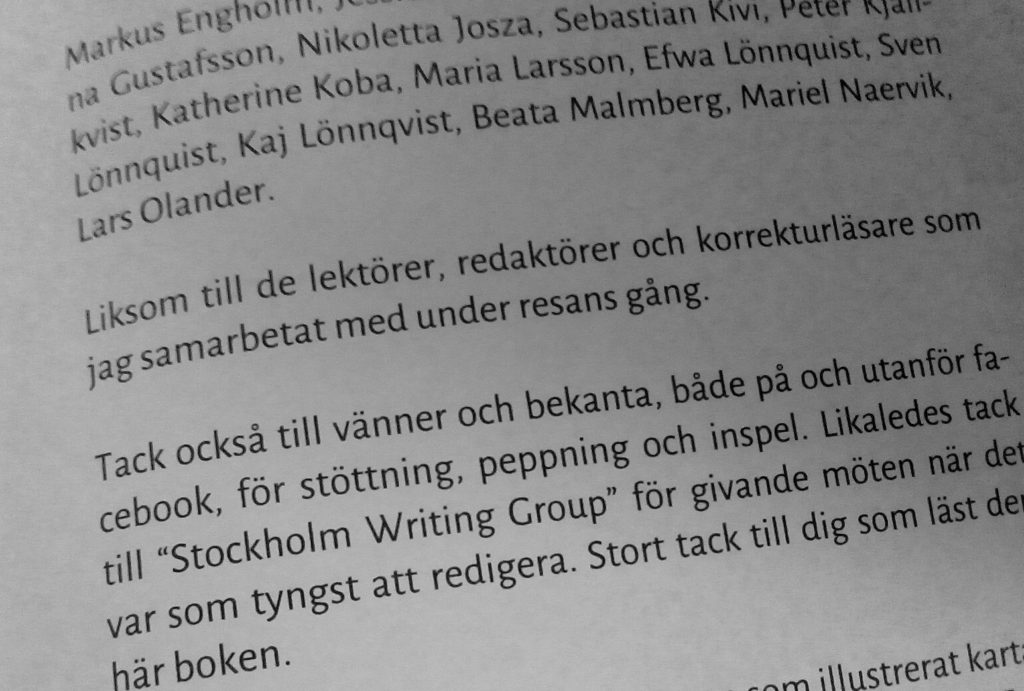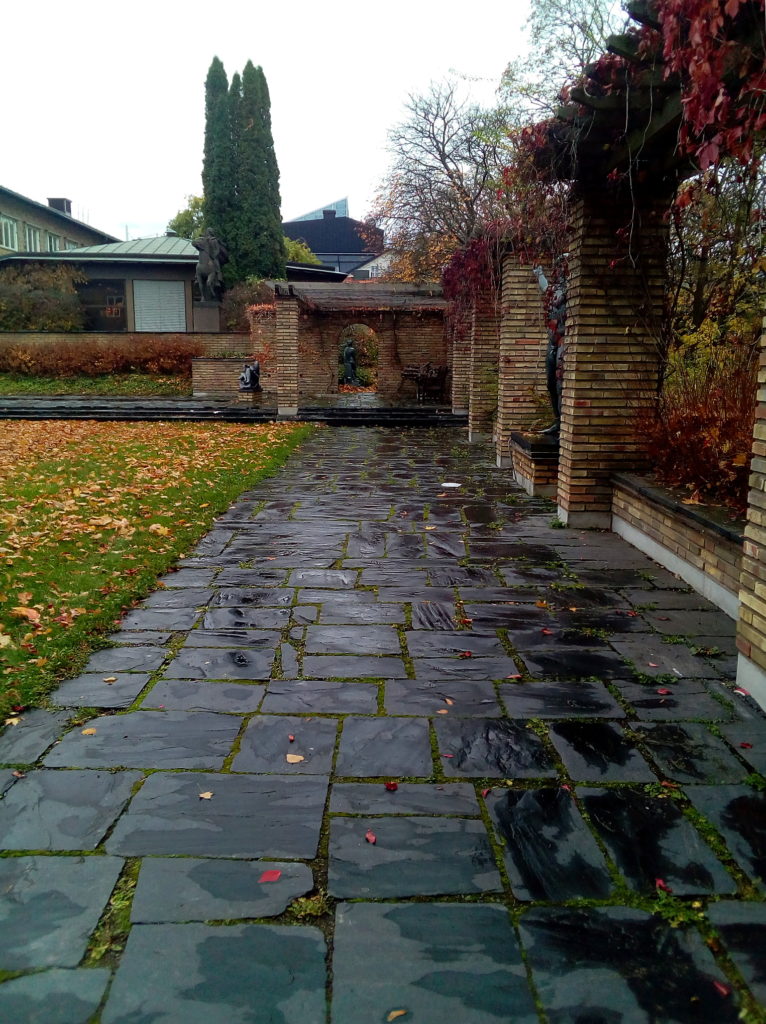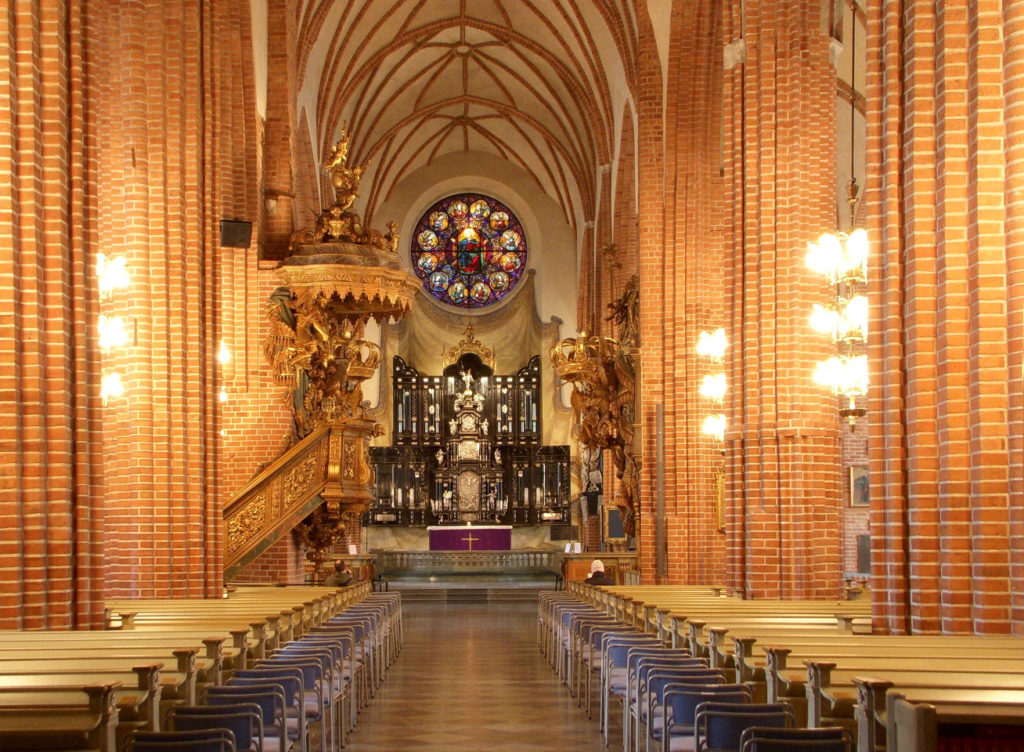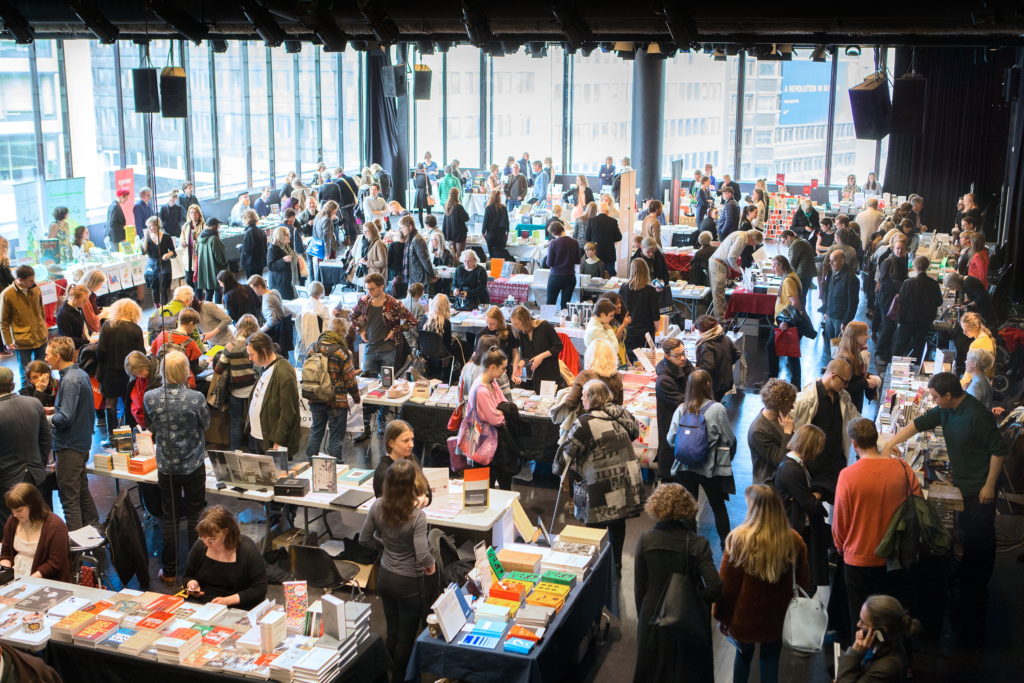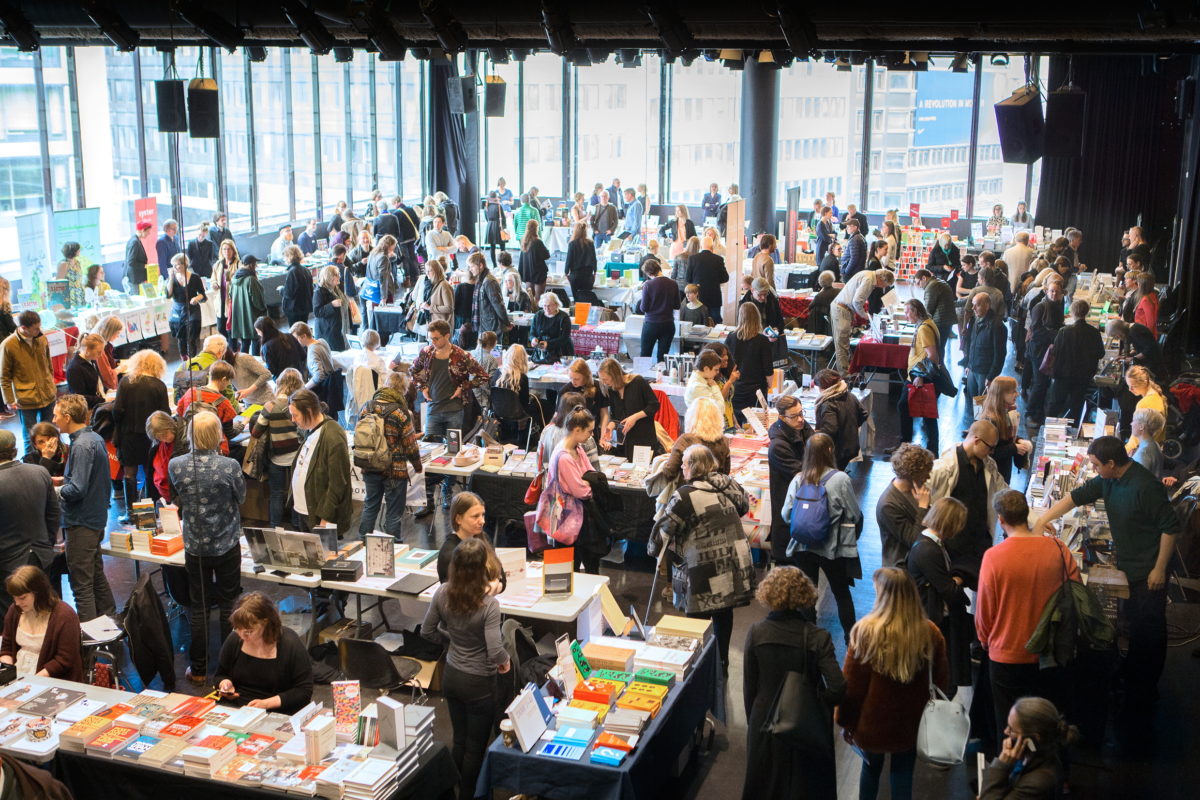Another Litteraturmässan has come and gone! What did I learn about the art of reading from the various talks and panels I attended?
1. Eight poets
Not much. I only dipped in after Somaya El Sousi’s reading and wasn’t particularly taken by what was on offer so I dipped out quickly thereafter. Instead, I bought a copy of her poetry collection and sat with it throughout the day. I’m left wondering if listening to her read would have made any difference. I’m also left wondering how to address the apparent gap in my Swedish where spoken poetry becomes just an incomprehensible wave of sound, why is that?
2. Missenträsk revisited
I wasn’t originally planning to attend this one because I don’t know anything about Sarah Lidman, but I got drawn into the discussion with Jennifer Hayashida as I was walking by the stage and stood and listened to nearly the entirety of it. While my own feelings about literary translation as a career constantly waver from “wow living the dream” to “too much pressure for me to handle,” I am drawn like a moth to the flame of literary translators themselves. Sometimes envious, always admiring.
3. What do we do when we read?
This was billed as a “phenomenological investigation,” and while I don’t think it was quite that deep, Nioosha Shams was also so engaging that I stopped in my tracks to listen. Fun to see the topic of bibliomancy come up at a serious academic event.
4. Renew your library card
The one talk that I had actually scheduled in my life after a concerted effort to finish Singulariteten, but like the two previous talks, Karam was so lively and charming I probably would have wandered into it anyway. The meaning of libraries for nerdy kids from decidedly non-academic families, how they should (and shouldn’t) be designed and supported.
5. Four poets
I had an easier time with this poetry reading. Maybe because this was a different genre/generation of poets, or maybe because this was the evening portion of the event at Musikaliska Kvarteret and I had started imbibing, who knows. That said, this is where I began to feel like a dinosaur even though the people in charge of putting on this event are (as far as I can judge these things) at least my age if not older. A young man in a t-shirt and jeans and slightly greasy (or maybe heavily stylized with product?) hair looked so nervous and out of place that I wanted to go up and say something friendly to him, but then he turned out to be one of the poets reading this time around. Everyone around me, seated either on the floor or a vintage fancy couch (how bohemian), exuded powerful art student vibes. Nike Markelius read poetry about her mother’s death set to a soundtrack and I got pretty choked up.
6. How to write a novel
Several drinks had happened by now. If you held a gun to my head and asked me to summarize the arguments made by either Stefan Lindberg or Jerker Virdborg, or the main points of “Manifest för ett nytt litterärt decennium,” I would be well dead.
7. Hundra hästar (Maria Törnqvist med band)
Not sure what a musical act had to do with the art of reading, but maybe Maria Törnqvist expressed some of her academic work in the form of song and it just passed me by. The band slapped, at least.
And it was at that point, dear reader, I realized that I was too sleepy and too awkward to enjoy the rest of the night, so I went out on a high note and caught the subway back home.


